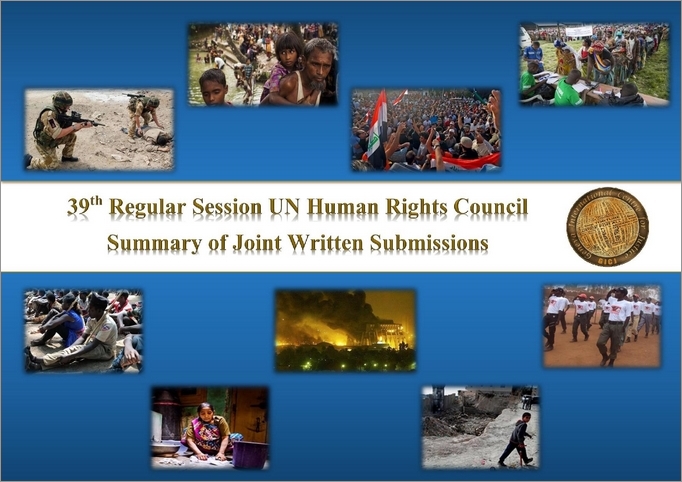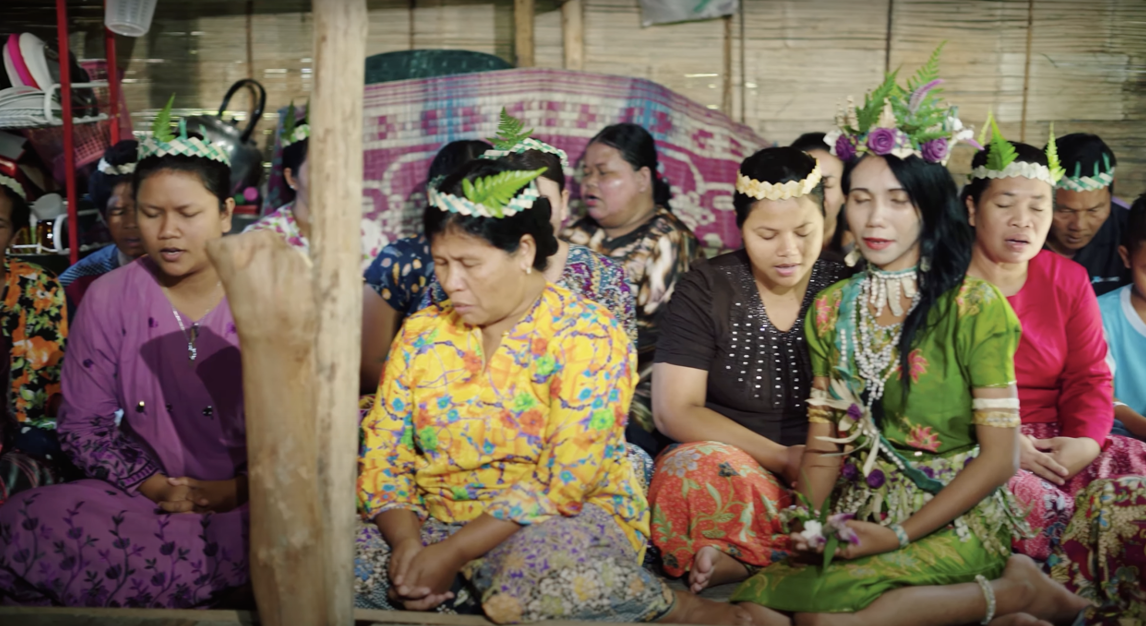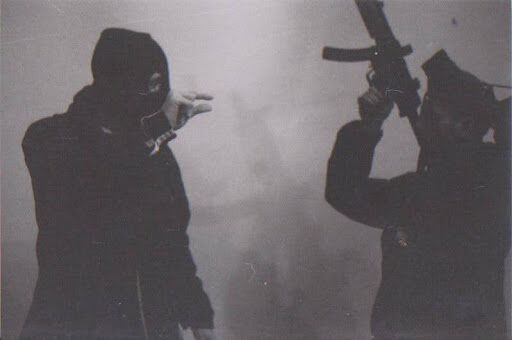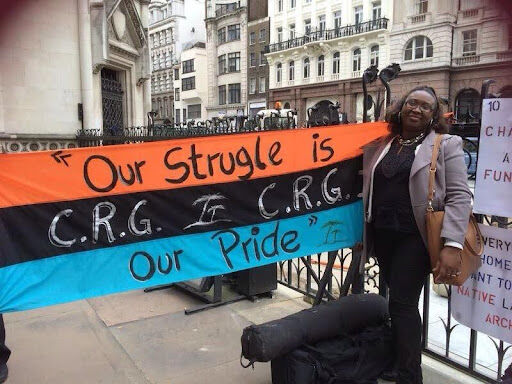
Geneva International Centre for Justice (GICJ) submitted nine jointly Written Statements with several signatories to the 39th Regular Session of the Human Rights Council. The statements covered several thematic issues and human rights situations in certain countries.
- A Look into Modern Day Slavery
- Aid Workers, Children in Armed Conflict, and Statelessness in South Sudan
- Basic Law: Israel as the Nation-State of the Jewish People
- Burundi – Acts of Violence, Intimidation and Threats by Imbonerakure
- Crimes Committed During the War and Occupation of Iraq
- Myanmar – The Continued Struggle of Rohingya for Citizenship
- The Context of the Conflict in the Democratic Republic of Congo (DRC)
- Truth and Justice with Respect to the Iraq War
- Systemic Grave Violations Against Peaceful Demonstrators in Iraq
A Look into Modern Day Slavery
 Countries have implemented numerous laws to prohibit any forms of slavery practices, however, new forms of contemporary slavery have appeared and countries have failed to prevent them. Besides traditional slavery, the mandate of the Special Rapporteur on contemporary forms of slavery, including its causes and consequences includes “forced labour, debt bondage, serfdom, children working in slavery or slavery-like conditions, domestic servitude, sexual slavery, and servile forms of marriage.”
Countries have implemented numerous laws to prohibit any forms of slavery practices, however, new forms of contemporary slavery have appeared and countries have failed to prevent them. Besides traditional slavery, the mandate of the Special Rapporteur on contemporary forms of slavery, including its causes and consequences includes “forced labour, debt bondage, serfdom, children working in slavery or slavery-like conditions, domestic servitude, sexual slavery, and servile forms of marriage.”
On 17 July 2017, the United Nations General Assembly published a report addressing the Contemporary forms of slavery, including its causes and consequences by tackling inequalities, gender differences, equal economic opportunities that would enable the world to reach the 2030 Agenda for Sustainable Development. Poverty, even though reduced still plays a major role in increasing slavery practices since most slavery targets are those part of the most vulnerable groups such as child pornography or child prostitution. Among the recommendations GICJ:
|
- Called on the international community to boycott campaigns against products made by enslaved persons and in particular those produced by children; - Called on the Human Rights Council to enhance their collaboration with countries of origin to help create safer transit routes for migrants and develop mechanisms to ensure adequate safety, - Called on member states to strengthen the security with regards to human trafficking both on the borders and in detention centres as well as developing bilateral agreements with the countries of origin; Implement economic reforms relating to working conditions, prohibiting any forms of exploitation in the workplace (working hours, minimum age, matching international standards as for the safety and health in the workplace and recruitment) with the focus on child labour and slavery, ensuring transparency in the business environment (including the whole supply chains). |
Link to full written statement.
Aid Workers, Children in Armed Conflict, and Statelessness in South Sudan
The civil war in South Sudan that began in December 2013 has claimed the lives of about 10,000 people and has displaced millions of others. For the third straight year South Sudan tops the global list of violence against humanitarian operations making it the most dangerous country for aid workers. The “Aid Worker Security Report, 2018” recorded major attacks against aid workers where South Sudan accounted for almost one third of the 158 major violent incidents against aid workers.

Since the beginning of the civil war in 2015 over 19,000 children were recruited and used by both warring parties and other government security forces and armed groups further endangering them and exposing them to high risks of being killed and maimed in the conflict between SPLA and SPLA-IO. Numerous incidents have been documented and reported of horrible violent attacks that killed and maimed hundreds of children and cases of sexual violence against girls are also on record.
As well, the repercussions of statelessness in South Sudan can truly affect a person’s life as their status will lead to the loss of access to basic rights and services such as education.
This statement addresses violent attacks against aid workers in South Sudan, the situation of children in armed conflict, and statelessness. These grave matters, among others, must be actively addressed especially for the sake of victims and people of South Sudan as they continue to struggle for peace and justice. To this end, GICJ gave recommendations, which included:
|
- The Human Rights Council to urge the international community and all relevant UN bodies to reinforce and enhance security measures towards humanitarian aid operations in South Sudan, especially the most vulnerable and remote areas; - The government of South Sudan to release all remaining child soldiers from Army Ranks and prioritize special health and education concerns of those released; and - The International Community to guarantee that the Peace Deal includes remedy for the victims of grave human rights violations, serious abuses, and war crimes. |
Link to full Written Statement.
Basic Law: Israel as the Nation-State of the Jewish People
On 19 July 2018, the government of Israel further deepened the concerns of the international community regarding its institutionalized discrimination against national minorities, notably Palestinian and Arab populations within its territory, by adopting a divisive new nation-state law.  The New Basic Law includes 11 discriminatory provisions such as recognizing the land of Israel as the “historical homeland of all Jewish people who are entitled to enjoy their natural, cultural, religious and historical right to self-determination.” Another provision declares Jerusalem as Israel’s capital, complete and united. It also defines the state symbols, memorials and public holidays based exclusively on Jewish heritage.
The New Basic Law includes 11 discriminatory provisions such as recognizing the land of Israel as the “historical homeland of all Jewish people who are entitled to enjoy their natural, cultural, religious and historical right to self-determination.” Another provision declares Jerusalem as Israel’s capital, complete and united. It also defines the state symbols, memorials and public holidays based exclusively on Jewish heritage.
Furthermore, the law reduces Arabic from an official language to a “special” status leaving Hebrew as the only official language. Additionally, it promotes the establishment and consolidation of Jewish settlements, insisting that it is a national value. By nature, this law automatically excludes and discriminates against Palestinians and other minorities. In some of its recommendations GICJ:
|
- Urged the Security Council as the main promoter and protector of peace to take initiatives along with the General Assembly and other relevant bodies to remedy this decades-long tragedy by condemning the discriminatory measures taken by Israel (further actions should be taken regarding the unwillingness of Israel to abide by UN resolutions, in particular the 1974 resolution concerning the Palestinian right to self-determination (A/Res/3236 (XXIX)); - Called upon all the relevant bodies to hold accountable those responsible for enacting discriminatory laws such as the New Nation law that would translate into another apartheid; and - Called on the UN to exert all efforts for the revocation of the New Nation-State Law that explicitly mentions Jewish national rights but fails to do the same for minorities. |
Link to full Written Statement.
Burundi – Acts of Violence, Intimidation and Threats by Imbonerakure
The political, humanitarian and human rights crisis in Burundi began in 2015 after President Pierre Nkurunziza sought a third term in the 2015 presidential elections, which consequently sparked protests and widespread demonstrations as the decision was deemed unconstitutional. Since, there have been numerous reports by various United Nations bodies, several non-governmental organisations, as well as on the ground information and witness-testimony that have reported serious human rights violations, atrocities, and abuses in connection with or attributed to the government of Burundi perpetrated against civilians.
 The Imbonerakure are the Youth Wing of the current ruling party CNDD-FDD and was formed in 2010 and has been active ever since. In Burundi’s Third Universal Periodic Review (UPR) Cycle OHCHR-Burundi included the Imbonerakure as one of the groups that committed most of the human rights violations in Burundi, including “summary executions, enforced disappearances, torture and the alleged sexual violence.” In 2017 the UN High Commissioner for Human Rights, Zeid Ra’ad Al Hussein acknowledged the dangerous threat of the Imbonerakure as he strongly condemned their “grotesque rape chants” during rallies in Burundi where they made repeated calls to impregnate or kill party opponents. In 2018, reports have revealed numerous instances where certain groups of people were forced by the Imbonerakure to attend rallies and events of the current ruling party.
The Imbonerakure are the Youth Wing of the current ruling party CNDD-FDD and was formed in 2010 and has been active ever since. In Burundi’s Third Universal Periodic Review (UPR) Cycle OHCHR-Burundi included the Imbonerakure as one of the groups that committed most of the human rights violations in Burundi, including “summary executions, enforced disappearances, torture and the alleged sexual violence.” In 2017 the UN High Commissioner for Human Rights, Zeid Ra’ad Al Hussein acknowledged the dangerous threat of the Imbonerakure as he strongly condemned their “grotesque rape chants” during rallies in Burundi where they made repeated calls to impregnate or kill party opponents. In 2018, reports have revealed numerous instances where certain groups of people were forced by the Imbonerakure to attend rallies and events of the current ruling party.
In order to bring a halt to the abuses committed by the Imbonerakure, GICJ among its recommendations:
|
- Called on the government of Burundi to hold the Imbonerakure to account for any and all of its illegal activities and violations, and to provide them with human rights training and ensure that their actions are within human rights law; - Encouraged the East African Community (EAC) and Support Teams for Talks to ensure the full and effective participation of women, civil society organisations, women’s rights groups, grass roots organisations, refugee and minority groups, and youth groups; - Called on the Human Rights Council to support and allocate appropriate bodies and stakeholders towards providing all necessary technical and financial assistance for the EAC in efforts to build solidarity and immediately re-institute talks for dialogue and implementing peaceful measures in Burundi. |
Link to full Written Statement.
Crimes Committed During the War and Occupation of Iraq
This statement focuses on violations of international law during the Iraq War and occupation, and in particular, crimes committed by the United States of America and its allies. The extent of Coalition crimes warrants the establishment of an independent international tribunal that can investigate and prosecute such crimes. This tribunal should also investigate whether the crimes committed during the Iraq War constitute genocide under international law.
 An independent international tribunal for Iraq would strengthen international humanitarian law, provide victims an opportunity to voice the horrors they witnessed and experienced, would bring justice to the persons responsible for them, and would contribute to restoring and maintaining peace. The international tribunal would apply existing international law to which all parties in the Iraq War are bound, including treaty law and jus cogens principles. Thus, among its recommendations,
An independent international tribunal for Iraq would strengthen international humanitarian law, provide victims an opportunity to voice the horrors they witnessed and experienced, would bring justice to the persons responsible for them, and would contribute to restoring and maintaining peace. The international tribunal would apply existing international law to which all parties in the Iraq War are bound, including treaty law and jus cogens principles. Thus, among its recommendations,
|
GICJ: - Appealed to the United Nations to urgently endorse an investigation into whether the crimes committed by the Coalition amount to genocide under international law; - Called on the United Nations to urgently endorse an international tribunal for the prosecution of persons responsible for serious violations of international humanitarian law committed in the territory of Iraq during the initial invasion and then the subsequent occupation of Iraq by the United States and other Coalition members; and - Requested the Human Rights Council to urgently appoint a Special Rapporteur to monitor and report on the human rights situation in Iraq. |
Link to full Written Statement.
Myanmar – The Continued Struggle of Rohingya for Citizenship
The most challenging problem for the Rohingya is that of Citizenship Status. Today, the Rohingya are the biggest community of stateless people in the world. The 1982 Burmese Citizenship Law provides citizenship based on ethnicity which recognized 135 ethnic groups excluding the Rohingya, thus, gravely violating their fundamental rights and freedoms including restriction on their right to freedom of movement, limits on access to lifesaving health care and denial of the rights to education and equal employment opportunities.

In January 2018, the governments of Bangladesh and Myanmar signed an agreement to allow the physical repatriation of Rohingya Refugees that fled to Bangladesh after the violence broke out against the Rohingya in the Rakhine State of Myanmar. In June 2018, the Tripartite agreement between the government of Myanmar, UNHCR, and UNDP is entered into force. Despite this Memorandum of Understanding (MoU) and the agreement between Myanmar and Bangladesh, the Rohingya have not returned to Myanmar. The government of Myanmar has failed to dismantle any discriminatory laws, policies and practices against the Rohingya which makes it hard or rather impossible for the refugees to return to their homes in the near future.
In some of the recommendations GICJ urged:
|
- The Myanmar government to dismantle the discriminatory laws, policies, and practices against the Rohingya and to work with the UN Fact-Finding Mission (FFM) and allow access to the High Commissioner, the Special Rapporteur, and the Commission on Inquiry to the Rakhine State; and - The Human Rights Council to ensure the implementation of the Tripartite MoU between the Myanmar government and the UN agencies and to call on the international community for their support to end the atrocities committed against the Rohingya by pressuring Myanmar to abide by its international obligations and responsibilities. |
Link to full Written Statement.
The Context of the Conflict in the Democratic Republic of Congo (DRC)
 The humanitarian crisis in DRC has gravely affected civilians and the violence and human rights abuses continue to intensify and spread. By the end of June 2018, there were nearly 1,150 cases of cholera reported in the greater Kasai. This was the second outbreak of cholera since the start of the crisis in August 2016. Worse still, the reports have indicated that educational and medical facilities among others are being targeted which only further deteriorates the humanitarian situation and directly affects the lives of thousands of children. According to the 2017 Annual Report of the Secretary-General on children and armed conflict, the fragmentation of armed groups and switching parties and ideologies have contributed to the degradation of the situation of children in the country.
The humanitarian crisis in DRC has gravely affected civilians and the violence and human rights abuses continue to intensify and spread. By the end of June 2018, there were nearly 1,150 cases of cholera reported in the greater Kasai. This was the second outbreak of cholera since the start of the crisis in August 2016. Worse still, the reports have indicated that educational and medical facilities among others are being targeted which only further deteriorates the humanitarian situation and directly affects the lives of thousands of children. According to the 2017 Annual Report of the Secretary-General on children and armed conflict, the fragmentation of armed groups and switching parties and ideologies have contributed to the degradation of the situation of children in the country.
Recent reports have also revealed that aid workers and asylum seekers have been the victims of shootings by Congolese soldiers in South Kivu. Targeting aid or humanitarian workers amounts to war crimes under the Statute of the International Criminal Court as such actions violate the Geneva Conventions of 12 August 1949, which protects aid workers under customary International Humanitarian Law (IHL). In this context GICJ recommended, among others, that:
|
- The DRC government comply with International Humanitarian Law and International Law especially with respect to aid workers and children, as it is the part of the state's responsibility; and ensure that the training of the National Security Forces is efficient and effective and extend the training to any authority officer; and - The Human Rights Council to take measures to hold to account Kabila’s clan and any People's Party for Reconstruction and Democracy member for their part in any human rights violations; and to closely monitor the human rights situation prior to and after the December 2018 elections. |
Link to full Written Statement.
Truth and Justice with Respect to the Iraq War
This statement focuses on the troubling lack of accountability for the crime of aggression committed through the invasion of the Republic of Iraq in March 2003 by the United States of America. The Coalition committed the crime of aggression when they invaded Iraq in March 2003. To date, there has only been one attempt to investigate the issue of aggression in Iraq. This lack of accountability sets a dangerous precedent. The illegal war in Iraq not only threatens the doctrine enshrined in the Charter but also erodes the foundation of a world order governed by the rule of law.
Since the domestic judicial mechanisms of the United States, other Coalition countries or the victim country (Iraq) may be ineffective in prosecuting or otherwise examining the issue of aggression, there is a need for an alternative and international judicial platform. Like previous international criminal tribunals, an independent international criminal tribunal for the crimes committed in the lead up to the Iraq War will further the cause of justice, enforce and uphold the rule of law, and further international accountability. It will set precedent that no member State can violate the Charter without consequences.

Some of the recommendations given by GICJ were that:
|
- The Human Rights Council should urgently endorse an international independent investigation and an international tribunal to look into allegations that the United States and the Coalition committed the crime of aggression when they invaded Iraq; and - The United Nations should condemn crimes of aggression by member states, including the one committed by the United States and the Coalition when they invaded Iraq. |
Link to full Written Statement.
Systemic Grave Violations Against Peaceful Demonstrators in Iraq
The right to freedom of opinion and expression, and the right to freedom of peaceful assembly and association are established in articles 19 and 20 of the Universal Declaration of Human Rights and articles 19 and 21 of the International Covenant on Civil and Political rights (ICCPR). Both of these treaties are signed and ratified by the government of the Republic of Iraq, thus the country has an international obligation to comply with these rights.
 In Iraq however, these freedoms are often not respected. Most recently on the 8th of July, 2018 the Iraqi population began a series of new demonstrations in the cities of Basra, Wasit, Maysan, Diwaniyah, Samawah, Dhi Qar, Najaf, Karbala and the capital Baghdad where demonstrators expressed their frustration about the lack of jobs and basic services, including water and electricity, which only makes the situation in Iraq more and more difficult. Concurrently, there was a very high security alert by government authorities who used threats and intimidation tactics with the help of associated militias, security forces, and party leaders against many of the activists.
In Iraq however, these freedoms are often not respected. Most recently on the 8th of July, 2018 the Iraqi population began a series of new demonstrations in the cities of Basra, Wasit, Maysan, Diwaniyah, Samawah, Dhi Qar, Najaf, Karbala and the capital Baghdad where demonstrators expressed their frustration about the lack of jobs and basic services, including water and electricity, which only makes the situation in Iraq more and more difficult. Concurrently, there was a very high security alert by government authorities who used threats and intimidation tactics with the help of associated militias, security forces, and party leaders against many of the activists.
Among some of the recommendations GICJ:
|
- Called on the United Nations to condemn crimes of aggression by member states, including the one committed by the United States and the Coalition when they invaded Iraq; and - Urged the Special Rapporteur on the promotion and protection of the right to freedom of opinion and expression to make a country visit to Iraq. |
Link to full Written Statement.
GICJ's Participation at the 39th Regular Session of the UN Human Rights Council:
|
Read online or download the full report. |
|
GICJ's Participation at the Human Rights Council:
|
|
|
|








